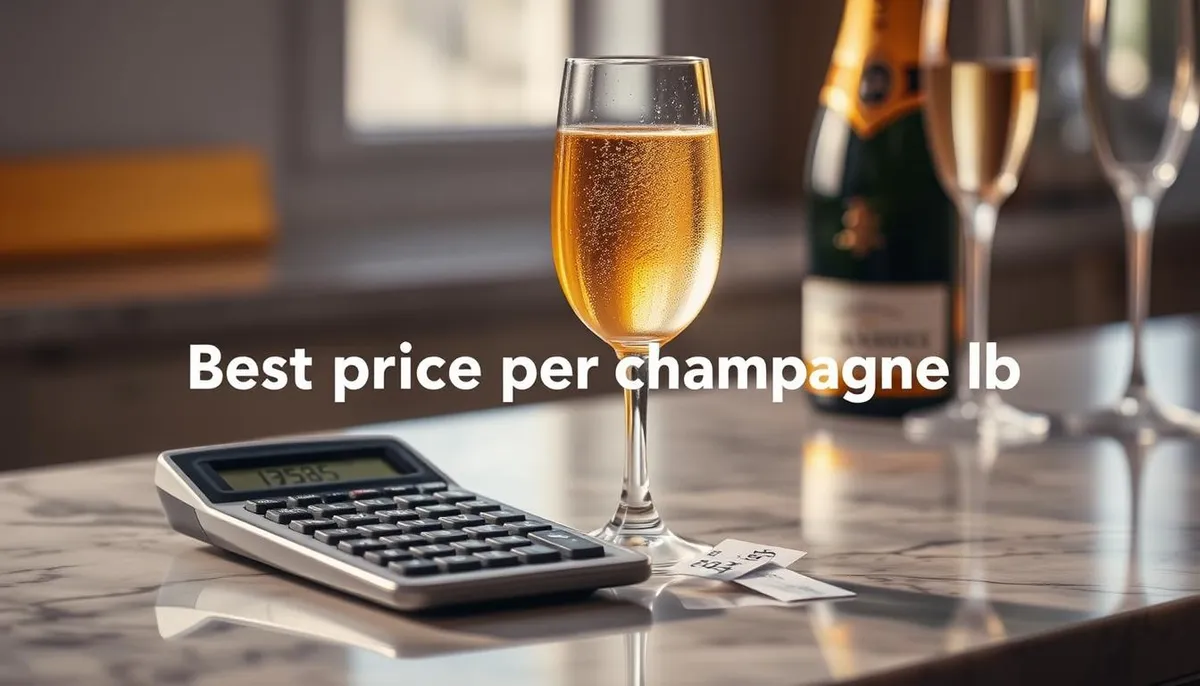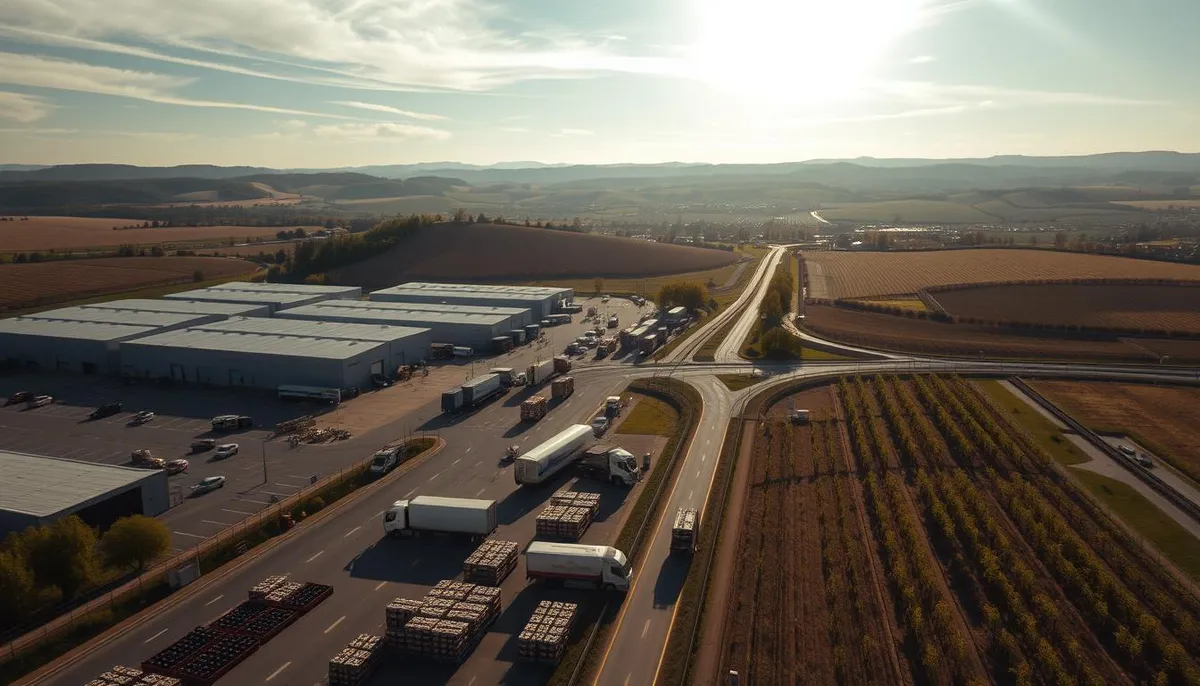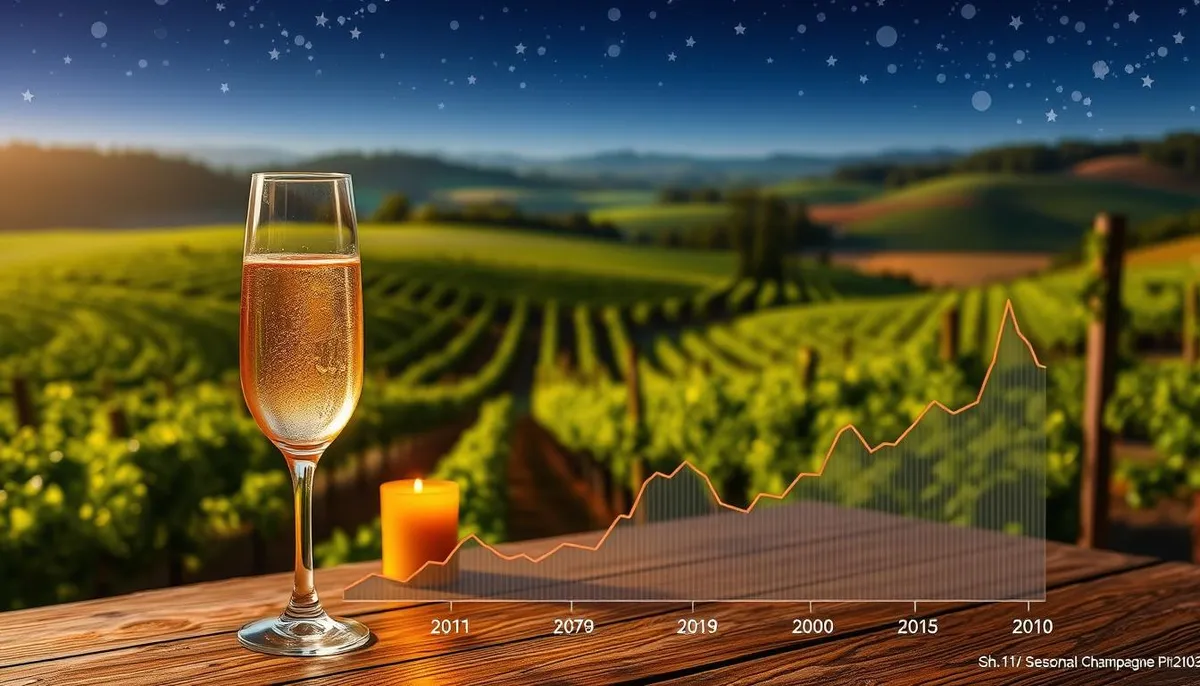Seeking the ideal champagne lb? You’ve arrived at the right destination! We aim to navigate you through the world of luxury branding, ensuring you discover the most competitive prices for this exquisite sparkling wine. With costs ranging from $200 to $500 for top-tier selections, grasping the nuances of champagne pricing is essential for both aficionados and industry insiders.

The champagne market has undergone substantial transformations. Since 2022, prices have escalated by approximately 25%, with the average retail price for a bottle of Brut NV in the UK now surpassing £40. This escalation is attributed to the rise in grape costs, which have surpassed €7 per kilogram. Despite these increases, champagne lb remains a more accessible luxury compared to other premium wines, such as white Burgundy, which typically commences at £50 per bottle.
Let’s examine some specific instances. L-B Latitude is currently priced at $51 per bottle, while L-B Longitude has seen a significant jump from around 40€ to over 60€. Tarlant Cuvée Sainte Anne, previously available for about 30€, now retails at $79. These shifts mirror the broader trend in the champagne lb market, where securing affordable options has grown more difficult.
Key Takeaways
- Champagne prices have increased by 25% since 2022
- Average retail price for Brut NV in the UK is over £40
- Grape costs have risen to over €7 per kilogram
- Specific brands like L-B and Tarlant have seen significant price increases
- Champagne remains relatively affordable compared to other luxury wines
- Prices are expected to stabilize by 2025
Understanding Premium Champagne Pricing Basics
The realm of premium alcohol, notably champagne from French vineyards, is intricate. Pricing within this domain, including premium champagne pricing, is influenced by several factors, ultimately determining the cost of each bottle. Exploring the complexities of champagne pricing is essential for making informed choices.
Factors Affecting Champagne Costs
Champagne prices are influenced by grape quality, production methods, and market demand. French vineyards employ meticulous techniques to create premium alcohol, impacting the final price. For example, the Charles Heidsieck Brut Réserve Champagne, priced at £34, offers good value within the regional pricing context.
Quality Classifications and Price Ranges
Wine marketing categorizes champagnes based on quality and price. Here’s a general breakdown:
- Popular Premium: $10-$15
- Premium: $15-$20
- Super-Premium: $20-$30
- Ultra Premium: $30-$50
- Luxury: $50-$100
- Super Luxury: $100-$200
- Icon: $200+
Market Dynamics in Champagne Pricing
The champagne market is dynamic, with prices fluctuating based on supply and demand. Limited editions from renowned French vineyards can command higher prices due to their exclusivity. Understanding these market dynamics is crucial for navigating the premium alcohol landscape and finding the best value for your budget.
Current Champagne LB Market Rates
The champagne lb market is witnessing significant transformations in 2023. Shipments have rebounded to pre-pandemic levels, reaching approximately 300 million bottles. This indicates a strong rebound for premium beverages. Despite a minor decline from the 2022 zenith, the total value of champagne shipments remains substantial, nearing €6.2 billion.
Price trends for champagne lb have undergone notable alterations. The escalation in raw material costs and heightened demand have prompted three price hikes this year. The production cost of champagne has skyrocketed by 30%-35%, influencing retail prices. The scarcity of budget-friendly options under £15 underscores the market’s overall price escalation.
The premium segment of the champagne lb market continues to flourish. A new luxury offering, Cuvée Karma 2016, debuts at €575 per bottle, showcasing the persistent demand for elite high-end beverages. This trend highlights the luxury champagne sector’s resilience, even amidst broader market volatility.
| Market Indicator | 2023 Data |
|---|---|
| Total Shipments | 300 million bottles |
| Total Value | €6.2 billion |
| French Market | 127 million bottles (-8.2%) |
| Export Market | 172 million bottles (-8.2%) |
| Production Cost Increase | 30%-35% |
Premium Champagne Brands and Their Price Points
Luxury branding is pivotal in the realm of premium champagnes. These celebratory drinks are often priced high, reflecting their exclusivity and prestige. Among the most sought-after options are various premium champagne brands, which we will examine along with their pricing strategies.
Dom Pérignon Price Analysis
Dom Pérignon epitomizes luxury in the champagne domain. Their prices span from $250 to $400 for standard bottles, with special editions commanding even higher prices. The Rosé Dom Pérignon gold edition 1996 (8 liters) sold for an impressive €41,159, marking the brand’s zenith in luxury branding.
Veuve Clicquot Pricing Structure
Veuve Clicquot presents a variety of celebratory drinks at different price points. While their standard bottles are more accessible, rare vintages command astronomical prices. A prime example is their shipwrecked bottles from 1841, valued at €30,000 each, underscoring the brand’s historical significance and collectible appeal.
Moët & Chandon Market Position
Moët & Chandon holds a robust market position with its diverse champagne offerings. Their pricing strategy caters to various segments of luxury consumers. The Moët & Chandon Imperial Vintage 1946, priced at €14,777, exemplifies their high-end offerings for discerning champagne enthusiasts. Additionally, the introduction of lady gaga wine has drawn attention from a younger demographic, further expanding their market reach.
| Brand | Product | Price (€) |
|---|---|---|
| Dom Pérignon | Rosé Gold Edition 1996 (8L) | 41,159 |
| Veuve Clicquot | 1841 Shipwrecked Bottles | 30,000 |
| Moët & Chandon | Imperial Vintage 1946 | 14,777 |
Vintage vs Non-Vintage Champagne Pricing
In the realm of champagne, two primary categories emerge: vintage and non-vintage. Vintage champagnes, made from grapes of a single, exceptional year, command a premium due to their scarcity and distinctiveness. French vineyards meticulously choose these years, producing limited quantities that embody the essence of that harvest.
Non-vintage champagnes, conversely, are a blend of wines from various years, aiming for a consistent house style. These champagnes are more accessible for daily consumption. To highlight the price disparity, let’s examine a few examples:
| Champagne Type | Brand | Price per Bottle |
|---|---|---|
| Vintage | 2011 Salon | $60.00 |
| Non-Vintage | Mercier Brut | $32.90 |
| Non-Vintage | Henri Laurent Brut | $35.54 |
| Non-Vintage | Charles Orban Blanc de Blancs | $49.99 |
The disparity in pricing is evident, with vintage champagnes from renowned French vineyards commanding a higher premium. The 2011 Salon, a highly coveted vintage, is nearly double the cost of some non-vintage champagnes. This price gap underscores the exclusivity and aging potential of vintage champagnes, appealing to both collectors and aficionados.
Size Variations and Their Impact on Pricing
Champagne lb is available in various sizes, each influencing its price and luxury branding appeal. The bottle size is a critical factor in determining the champagne’s cost and quality.
Standard Bottle Pricing
The 750ml standard bottle is the most prevalent size for champagne. It serves as the pricing baseline across different brands and vintages. Luxury branding often targets this size for everyday consumers.
Magnum Cost Comparison
Magnums, with a 1.5-liter capacity, are more expensive than two standard bottles. This size is preferred for aging and flavor development, appealing to champagne aficionados. The higher price reflects the enhanced quality and exclusivity.
Large Format Bottles Investment Value
Larger bottles, such as Jeroboams and Methuselahs, are viewed as investment pieces. Their rarity and impressive size make them sought after by collectors and for special events. These bottles can increase in value over time, notably for prestigious champagne lb brands. Additionally, engraved champagne gifts have become a popular choice for those looking to add a personal touch to their celebrations.
| Bottle Size | Volume (cl) | Equivalent in Standard Bottles |
|---|---|---|
| Piccolo | 20 | 1/4 |
| Standard | 75 | 1 |
| Magnum | 150 | 2 |
| Jeroboam | 300 | 4 |
| Methuselah | 600 | 8 |
Regional Price Variations in Champagne Distribution
The cost of champagne varies across regions due to several factors. French vineyards consistently produce high-quality wine. Yet, wine marketing strategies and local conditions significantly influence final prices. Import taxes, transportation costs, and regional demand all contribute to these variations.
In the UK, for instance, champagne shipments declined by 13% in 2024. This drop could impact pricing strategies in the British market. Currently, champagne stocks are at levels equivalent to four years of sales, exceeding the ideal three-year inventory. This surplus may cause price fluctuations in various markets.

The expense of producing champagne also affects regional pricing. Replanting vineyards in French wine regions can cost up to 50,000 francs per hectare. This includes maintenance and equipment costs, which are reflected in the final product price. Prices differ by market.
For those looking to buy champagne, these regional variations present opportunities. Some markets may offer better deals due to oversupply or lower import costs. Exploring direct imports could lead to finding more affordable prices. Additionally, you might want to consider the various champagne brands in rwanda, which can provide unique options. You can request a personalized quote on champagne-export.com to compare rates across regions and secure the best value for your purchase.
Investment Potential of Premium Champagnes
Premium champagnes offer more than just a luxurious drinking experience. They present a unique investment opportunity for those with a taste for exclusive vintages and luxury branding. Additionally, it's important to consider the presence of sulfites in champagne, as they are often used as preservatives. The champagne market has seen significant shifts, with a focus on quality over quantity.
Collectible Vintages
Certain champagne vintages have become highly sought-after by collectors. Vranken-Pommery Monopole, for example, has launched premium cuvées like Apanage Brut 1874 and Louise, catering to this demand. These limited production runs often appreciate in value over time, making them attractive investments.
Limited Editions Value
Limited edition champagnes, often the result of luxury branding strategies, can command high prices. The scarcity of these exclusive vintages drives up their value. For instance, prestige cuvées now account for 10% of champagne sales in Japan, highlighting the growing market for these rare bottles.
Long-term Investment Returns
While champagne production volumes have decreased, the value has increased significantly. From 2010 to 2018, the industry’s value grew from €3.73 billion to €4.89 billion. This trend suggests that investing in high-quality champagnes could yield substantial returns over time. Investors should, though, be aware that weather conditions can affect production and potentially impact returns.
| Year | Industry Value | Average Grape Price |
|---|---|---|
| 2010 | €3.73 billion | €5.36/kg |
| 2018 | €4.89 billion | €6.20/kg |
Understanding Champagne Quality-Price Ratio
The realm of sparkling wine, notably premium alcohol such as champagne, presents a nuanced pricing landscape. Grasping the quality-price ratio is crucial for making savvy purchases. This metric elucidates whether a champagne represents a fair value for its expenditure.
Recent market trends reveal a notable uptick in prices. Since 2022, the retail cost of Brut NV Champagne has surged by approximately 25%, with the average bottle now commanding €10 more. Entry-level prices have surpassed €40, erecting a financial hurdle for many consumers.
Quality does not always correlate with price. Vintage champagnes, though potentially superb, often require maturation. In contrast, non-vintage cuvees, crafted for immediate consumption, may present superior value. Grower champagnes from producers like M. Brugnon or Paul Launois offer accessible terroir experiences, and exploring award-winning uk wines can further enhance your collection.
| Champagne Type | Price Range | Value Proposition |
|---|---|---|
| Entry-level | $30-$40 | Basic quality, limited complexity |
| Mid-range | $40-$100 | Good quality-price ratio, diverse options |
| Luxury | $100+ | Premium quality, single vineyard, vintage |
Price disparities are considerable. Krug Brut 2004 can fetch up to $2795 per bottle, while Dom Pérignon Brut 2003 is priced at $423. For those seeking exceptional value, exploring lesser-known labels or purchasing directly from French producers can circumvent importer markups.
Seasonal Pricing Trends and Best Times to Buy
Grasping seasonal pricing trends is key to securing top deals on celebratory drinks, such as Champagne. Wine marketing tactics heavily rely on these shifts, emphasizing the importance of strategic purchasing. This approach ensures that buyers can capitalize on the most advantageous times to acquire their desired items.
Holiday Season Price Fluctuations
Champagne prices surge during the festive period, driven by heightened demand. The Champagne 50 index has witnessed a 58.6% increase over five years, with notable spikes around holidays. January 2021 stood out, maintaining elevated trade volumes post-holidays. This might be attributed to the temporary halt of US tariffs on Champagne.

Off-Season Buying Opportunities
For those who prefer to save, off-peak periods offer substantial savings. For example, retailers in the UK and France provided significant discounts on Champagne just before Easter. This insight suggests spring could be the perfect time for those looking to purchase bubbly without straining their budget.
| Season | Price Trend | Buying Opportunity |
|---|---|---|
| Holiday Season | Higher | Limited |
| Spring (Easter) | Lower | Excellent |
| Summer | Moderate | Good |
| Fall | Rising | Fair |
It’s worth noting that entry-level Champagne prices have seen an uptick, with bottles under £30 now viewed as budget-friendly. By monitoring these trends and timing your purchases strategically, you can indulge in your favorite celebratory drinks without incurring excessive costs.
Expert Tips for Champagne Value Shopping
Exploring the realm of high-end beverages can be overwhelming. Yet, with a few expert tips, you can uncover excellent champagne deals. Wine marketing frequently highlights prominent names. Yet, astute consumers recognize the value in exploring lesser-known labels.
Begin by considering brands that are not as well-known. La Marca Prosecco, for example, is an affordable yet delightful choice for mimosas. For those seeking a more premium option, Raventós i Blanc Conca Del Riu Anoia Blanc de Blancs 2021 is a Cava that complements orange juice exceptionally well.
Indie wine retailers are also worth exploring. They often carry hidden gems, including grower Champagnes at discounted prices. If a specific bottle is elusive, inquiring about similar alternatives can lead to fascinating discoveries within the champagne market.
Understanding the production methods behind your champagne can enhance your appreciation for its value. Krug, for instance, incorporates 150 reserve wines into their blends, ensuring a consistent quality across different vintages. Louis Roederer, the largest biodynamic estate in Champagne, prioritizes sustainability. Additionally, learning about various dog breeds can also enrich your understanding of the world around you. Bollinger, on the other hand, ages some magnums for up to 15 years, enriching their offerings with depth.
Value in champagne doesn’t necessarily equate to affordability. It’s more about the quality relative to its price. By broadening your knowledge and venturing beyond mainstream choices, you can discover exceptional champagnes that provide outstanding value for your investment.
Conclusion
Understanding the intricacies of champagne lb pricing can be daunting. Yet, with the right information, you can make well-informed choices. Knowledge of quality grades and seasonal fluctuations empowers you to discover sparkling wines at various price ranges.
Quality, vintage, bottle size, and regional differences all influence champagne’s cost. Whether you’re drawn to a Dom Pérignon or seeking a hidden treasure, there’s a champagne lb for every taste and budget. For rapid chilling, consider the spinning method in a salted ice bath, which can cool your champagne in 2-3 minutes.
Are you ready to dive into the world of champagne? Visit champagne-export.com for tailored quotes on a broad selection of champagnes. Their team of experts will guide you in finding the perfect sparkling wine, whether for a celebration or as an investment. With global shipping available, your ideal champagne lb is just a click away.
RelatedRelated articles



